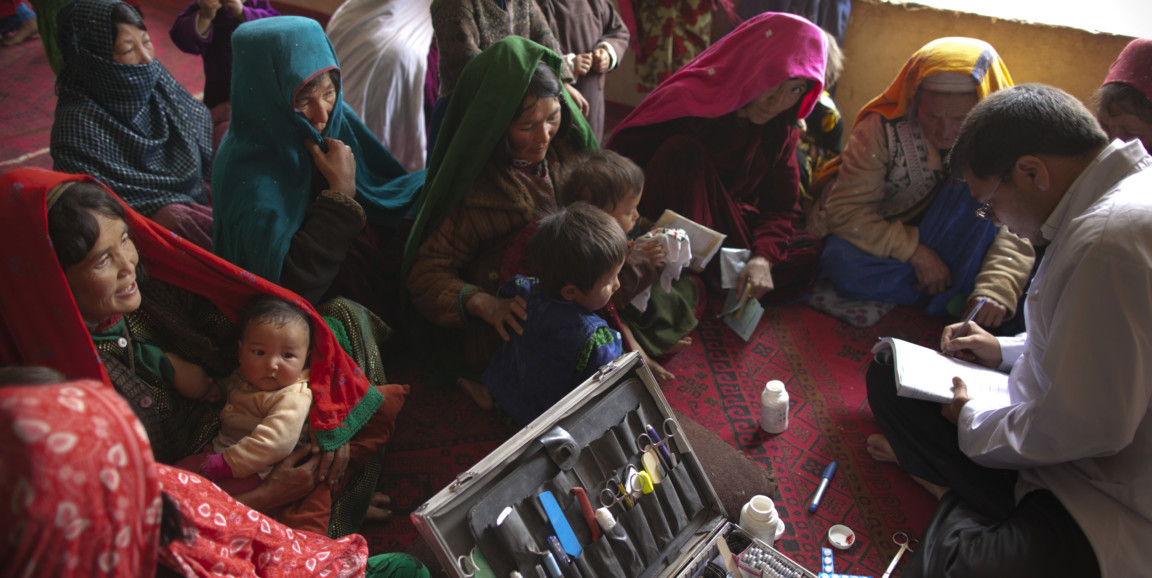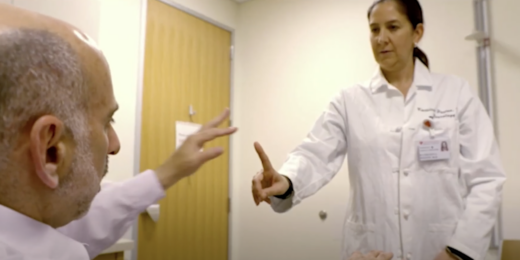When I was a journalist working in Asia and Africa — before coming to Stanford to report on health policy — nothing was more heartbreaking than seeing the lack of access to health care in some of the poorer countries, particularly among pregnant women and young children.
I wrote about women in the Democratic Republic of Congo who had perfectly healthy pregnancies, but both mother and child would die during a breech birth because she could not get to a hospital in time. I also reported on children in the slums of Calcutta who were felled by polio because their parents did not understand — or did not believe in — the vaccines that would have helped their kids grow tall.
Just as frustrating was the lack of good health care. In the Democratic Republic of Congo, when I went to the national hospital Mama Yemo, now known as the Kinshasa General Hospital, in the mid-2000s, it lacked even the most basic supplies like aspirin or syringes.
So it was disheartening, but not surprising, to learn recently that 5 million people die each year in low- and middle-income countries from poor-quality health care. That’s five times greater than the annual global deaths from HIV/AIDS — and three times more deaths than from diabetes.
The new findings come from an analysis published in The Lancet by The Lancet Global Health Commission on High Quality Health Systems. The two-year project brought together 30 academics, policymakers and health-systems experts from 18 countries to examine how to measure and improve health system quality worldwide.
“As efforts to expand universal health coverage continue to drive the global health agenda, these numbers remind us that addressing the quality of health systems must be a top priority," Stanford Health Policy’s Joshua Salomon, PhD, told me. He was a senior author of the analysis and a member of the commission.
As I reported for Stanford Health Policy, the commissioners used data from more than 81,000 consultations in 18 countries and found that, on average, mothers and children receive less than half of the recommended clinical actions in a typical visit, including failures to do postpartum check-ups, incorrect management of diarrhea or tuberculosis, and failures to monitor blood pressure during labor.
The commission, in an extensive report on its overall findings and recommendations, found systematic deficits in quality of care in multiple countries, across a range of health conditions and in both primary and hospital care.
The commission found poor-quality care is more common among the most vulnerable.
The wealthiest women attending antenatal care are four times more likely to report blood pressure measurements, and urine and blood tests compared to the poorest women; adolescent mothers are less likely to receive evidence-based care; and children from wealthier families are more likely to receive antibiotics. People with stigmatized health conditions, such as HIV/AIDS, mental health and substance abuse disorders, as well as other vulnerable groups such as refugees, prisoners and migrants are less likely to receive high quality care.
They found that over 8 million excess deaths due to poor-quality health systems lead to economic welfare losses of $6 trillion in 2015 alone. Poor-quality is a major driver of deaths amenable to health care across all conditions in low- and middle-income countries, including 84 percent of cardiovascular deaths, 81 percent of vaccine preventable diseases, 61 percent of neonatal conditions — and half of maternal, road injury, tuberculosis, HIV and other infectious disease deaths.
In addition, approximately 1 million deaths from neonatal conditions and tuberculosis occurred in people who used the health system, but received poor care.
“Quality care should not be the purview of the elite, or an aspiration for some distant future; it should be the DNA of all health systems,” said Margaret Kruk, MD, of the Harvard T.H. Chan School of Public Health, chair of the commission who co-authored the paper with Salomon. “The human right to health is meaningless without good quality care.”
Photo by Paula Bronstein/Getty Images




